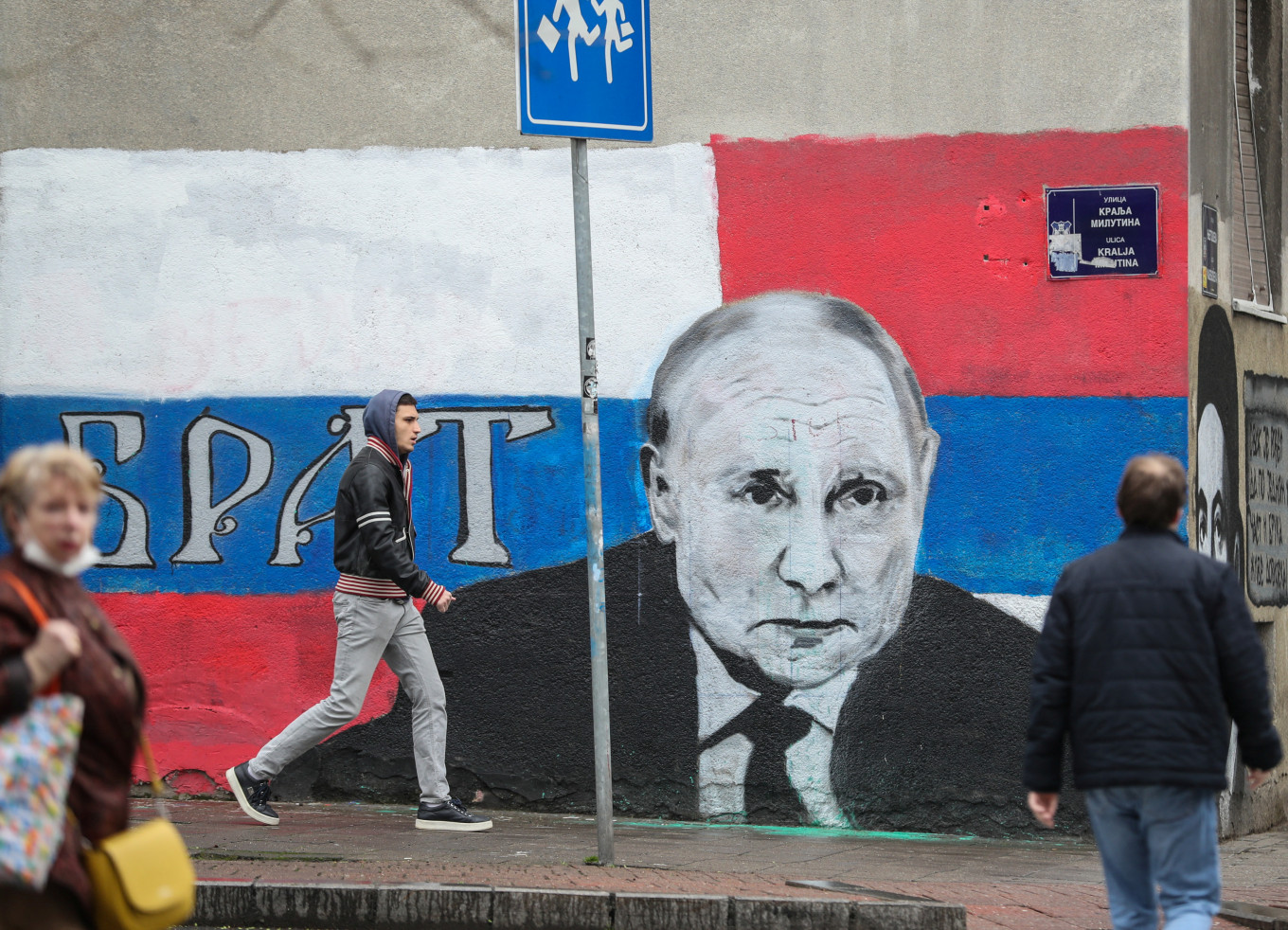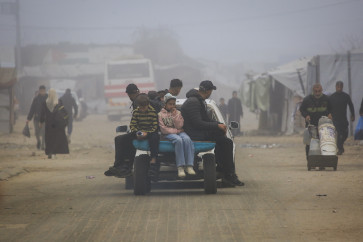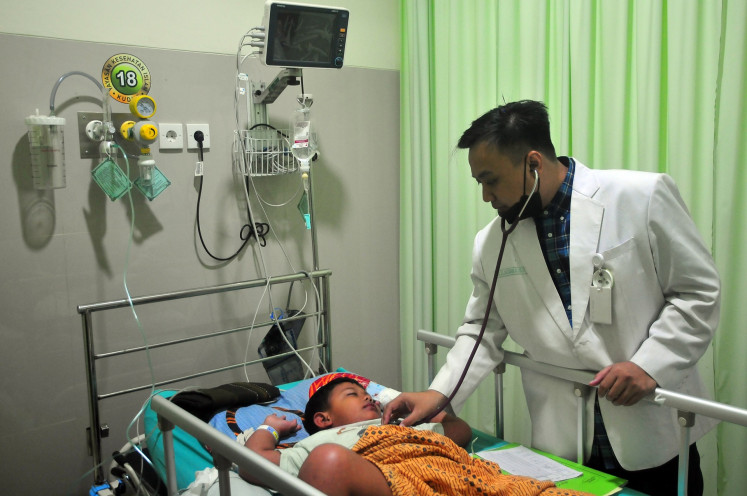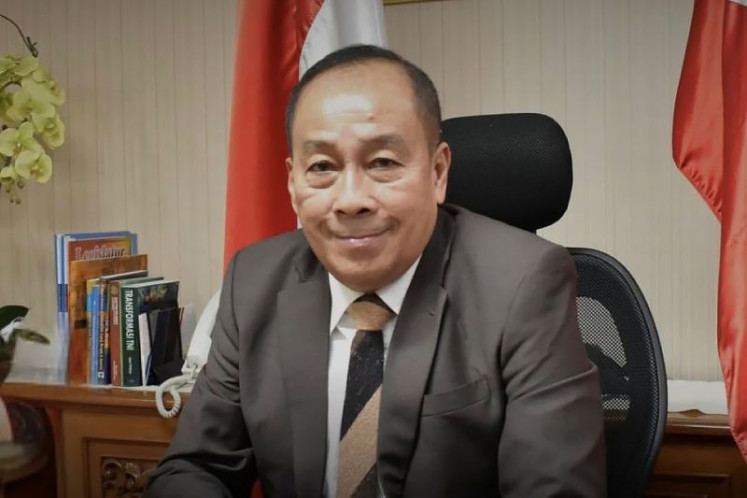Popular Reads
Top Results
Can't find what you're looking for?
View all search resultsPopular Reads
Top Results
Can't find what you're looking for?
View all search resultsWhy many Indonesian experts are pro-Russia and ignoring Ukraine’s perspective
Indonesia, the current host for the G20 summit, has not joined the chorus of nations, particularly western countries, in condemning Russia’s invasion of Ukraine.
Change text size
Gift Premium Articles
to Anyone
I
ndonesia, the current host for the G20 summit, has not joined the chorus of nations, particularly western countries, in condemning Russia’s invasion of Ukraine, which has displaced 11 million Ukrainians and devastated its cities and towns.
Some observers have criticised Indonesia for being pragmatic, calling the country a “fence sitter”. But public discussion in Indonesia, especially on social media, indicates support for Russia’s aggression.
According to a 2021 survey by the Lowy Institute, Indonesians trust the government and experts more than media organisations.
I argue that published opinions of Indonesia’s international relations experts and practitioners are among the factors that drive pro-Russian sentiment in Indonesia.
The pattern of Indonesian experts’ responses
Most commentaries and op-eds by Indonesian academics and former diplomats focus on aspects of the war related to politics of the great powers. They portray Russia’s invasion of Ukraine as a result of conflict between Russia and the west – the United States and its NATO allies. Such narratives give no room for Ukrainian perspectives.
Some experts blame the US for expanding the western military alliance to Eastern Europe. Some argue the Russian position is understandable. Others highlight Russia’s identity as a great power. One accuses both the US and Russia as liars. Some suggest Ukraine should be a neutral country and admit defeat due to the gap in military capabilities.
Unfortunately, only few experts have mentioned the refugee crisis, or explained the Ukrainian and other small-states’ perspectives. We can rarely find op-eds that support Ukraine’s position. So Ambassador Havas Oegroseno’s latest article criticising Indonesian officials’ and experts’ positions is like an oasis in the desert.
Why the lack of sympathy towards Ukraine?
The nature of international relations studies in Indonesia is still western and American-centric, prioritising the logic of rationality and competition between the great powers.
Most international relations experts are familiar with an article by leading American neorealist John Mearsheimer that criticised the west for provoking Russia.
This heavily criticised article is very popular in Indonesia. Many Indonesian experts use Mearsheimer’s flawed logic to explain what happened in Ukraine by only mentioning NATO’s eastward expansion and great-power politics between Russia and NATO. This has led to severely misguided policy proposals for peace.
Consequently, their narratives fail to accommodate the Ukrainian perspectives, falling victim to “westplaining Ukraine”.
In addition to the dominant realist paradigm, Indonesia lacks Russian and East European studies experts.
Currently, only two Indonesian universities offer Russian studies. This has caused a lack of knowledge about Russia and Eastern European history and politics. This has made Indonesian experts susceptible to disinformation campaigns by Russia.
For example, an article published in local newspaper Media Indonesia uses terms such as “special operation” and “demilitarisation-denazification” for the invasion.
Indonesian international relations experts also often focus on the country’s self-image as an essential global player, while neglecting the views of the victims.
Indonesian intellectuals often put forward the notion of Indonesia as a potential honest broker to help mediate the conflicted parties in the Russia-Ukraine war. In fact, according to its diplomatic history, Indonesia only had a mediating role in Southeast Asia.
Aspiring to be a great power and being the largest economy in Southeast Asia, people in Indonesia may find it difficult to understand the perspective of small nations and their fears of neighbouring large states with imperial ambition.
Based on its history as a victim of colonialism, Indonesians should be able to sympathise with the plight of Ukrainians. Unfortunately, the country’s anti-imperialist notion is mainly directed toward the west, failing to recognise that Ukraine and other East European countries also suffered from Russian and Soviet imperialism.
We should note that Indonesia’s troubled history regarding Konfrontasi with Malaysia and the decolonisation concerning Papua and East Timor has made the country’s policymakers and intellectuals susceptible to ignoring the perspectives of a post-colonial European state such as Ukraine.
A reflection for public intellectuals
Experts and intellectuals should take advantage of Indonesians’ trust in them by educating the public about the actual situation in Ukraine, especially when the Indonesian government is hesitant and cautious.
Op-eds focusing on the humanitarian aspects of war, such as the Russian military’s atrocities and the impact of the refugee crisis, should be prioritised.
Even if we, as experts, want to be neutral and objective, we have a moral responsibility to tell the truth about the current humanitarian crisis in Ukraine and clearly state our moral position by openly condemning Russian atrocities.
Objectively analysing the causes of the war would not stop the humanitarian catastrophe in Ukraine. There will be time for that later. At this moment, staying neutral and silent would mean indirectly supporting the Russian aggression and humanitarian atrocities in Ukraine.![]()
---
The writer is a lecturer in Russian and Eastern European Studies, Department of International Relations, Universitas Airlangga, Universitas Airlangga
This article is republished from The Conversation under a Creative Commons license. Read the original article.











